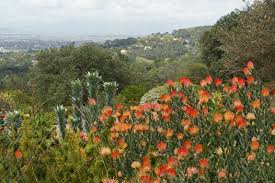 Rhodes University will lead an international research collaboration that seeks to discover and accelerate the development of new antibiotics. The three-year, £1.5 million project, funded by the Newton Fund through the Antibiotic Accelerator Initiative of the United Kingdom (UK) Medical Research Council (MRC) and South African (SA) MRC, aims to discover novel compounds from natural sources that have the potential to be developed into new antimicrobial compounds to combat drug-resistant bacterial pathogens.
Rhodes University will lead an international research collaboration that seeks to discover and accelerate the development of new antibiotics. The three-year, £1.5 million project, funded by the Newton Fund through the Antibiotic Accelerator Initiative of the United Kingdom (UK) Medical Research Council (MRC) and South African (SA) MRC, aims to discover novel compounds from natural sources that have the potential to be developed into new antimicrobial compounds to combat drug-resistant bacterial pathogens.
The project will bring together scientists from 12 higher education and research institutions in SA and five from the UK. All the universities of the Eastern Cape and the South African Institute for Aquatic Biodiversity are part of this research consortium that seeks to establish an Antibiotic Accelerator Hub to significantly boost capacity for the discovery of new antibiotics. The focus will be on unexplored, biodiversity-rich habitats, including deep sea and polar environments, offering real potential for new ‘natural product’-derived drugs.
Antimicrobial resistance (AMR) is widely regarded as one of the greatest threats to global public health, the impact of which is particularly severe in developing countries. In addition to the growing list of bacterial pathogens known to be resistant to treatment, there is increasing concern over sexually-transmitted infections caused by resistant Neisseria gonorrhoea. There is, clearly, an urgent need for the discovery of new antibiotic therapeutics to counter the danger posed. Moreover, alongside medical benefits, this project aims to support future growth in the bio-economies of both countries, ensuring fair and equitable sharing of the benefits of any new drugs arising from the research.
Rhodes University’s SARChI Professor, Rosemary Dorrington, said she is hoping that the partnership will establish a regional centre for drug discovery within the Eastern Cape Province and profile Rhodes University as a drug discovery hub.
“This initiative will lay the foundation for a multi-disciplinary drug discovery platform in a region known to be a terrestrial and marine biodiversity hotspot. The establishment of a Natural Products Research Network representing twelve South African partner institutions will provide unprecedented access to the chemical diversity of our extraordinarily rich natural resources,” she said.
Professor in Medical Microbiology at the University of Plymouth, Mat Upton, who is leading the project from the UK, said: “We know there is an urgent global need to accelerate the discovery of new antimicrobial drugs and bring them to market, and this project brings together expertise from the UK and South Africa to create the infrastructure for that to happen. Natural products and their synthetic analogues are the basis for most antibiotics in clinical use today, and the hope is that this collaboration will go some way towards unlocking the potential resources contained in marine and terrestrial biota in South Africa, one of the world’s most biodiverse places.”
Read more about the project, Harnessing natural product diversity to combat multidrug-resistant pathogens, on the UKRI Gateway to Research:
https://gtr.ukri.org/projects?ref=MC_PC_MR%2FT029579%2F1



